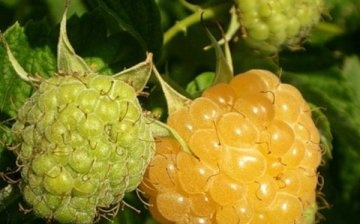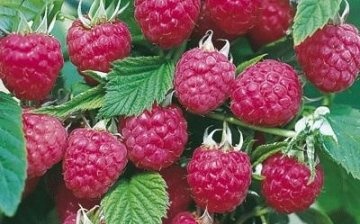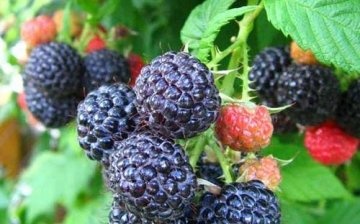Appetizing raspberry in the photo. Which grade to choose
Raspberries are a popular berry crop among gardeners. It is characterized by such qualities as usefulness, including in terms of the presence of medicinal properties, wonderful taste, beauty. The raspberry in the photo literally asks for a mouthful and makes you want to feast on it fresh for as long as possible. However, the existing variety of its varieties can be confusing which one to choose. In order for the choice to be correct, it is worth knowing about some of the nuances.
Among the varieties of raspberries, ordinary and remontant ones are distinguished. The first of them differ depending on the ripening period, the second are capable of fruiting, whether overwintered or young shoots. Cultivation of remontant raspberries justifies itself for obtaining a late harvest, the harvest time of which falls on the end of summer - beginning of autumn.
An ordinary raspberry of a variety with not large berries, but characterized by good winter hardiness, will require minimal care in the presence of a good harvest. This is an option for people who do not have a surplus of free time.
The variety must be suitable for the climate in which it is going to be grown. This is one of the prerequisites for a good harvest. Indeed, although raspberries cannot be called whimsical, many of their varieties are unable to endure wintering without proper shelter.











For the last three years I have been growing only remontant raspberries. The only minus is that it begins to bear fruit late, so in the fall I make it under arches and covering material in order to prolong the fruiting period. After severe frosts, I do pruning.
We have a common raspberry growing, beginning to bear fruit early and at the end of summer it is gone. We look after very carefully: we cut it off, tie it up and pour it with sawdust, etc.
Raspberries are the most delicious berry for me. We prefer remontant raspberries, which grows with us. For me, its only drawback is that it is not as aromatic as usual. The truth can be so simple with us.
I do not agree that large-fruited raspberry varieties should not be planted. I grow a very large raspberry variety "Cap of Monomakh" on my site. It is sweet and delicious. But there is one drawback - if ripening gets into heavy rains, then the sourness will be felt in the taste. And so raspberries are just gorgeous.
I grow medium sized dessert raspberries.The taste is divine, melts in the mouth, children adore! I did pruning this year, then I almost cried, I just threw out half of the branches, they were all dried up ((Maybe it was frozen, we had severe frosts.